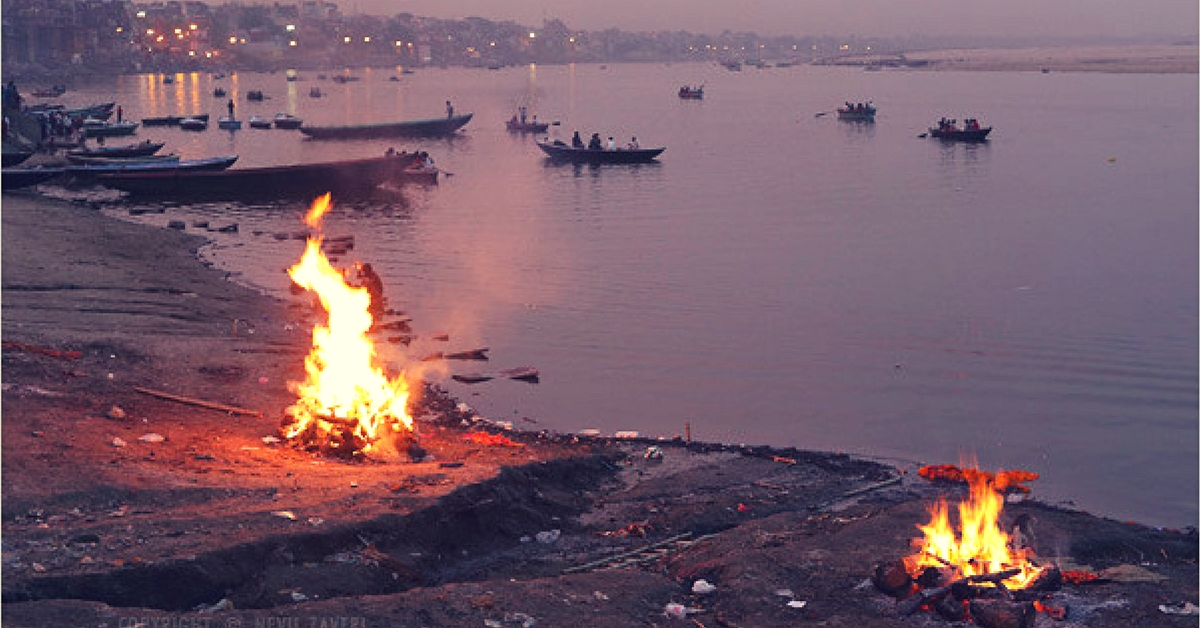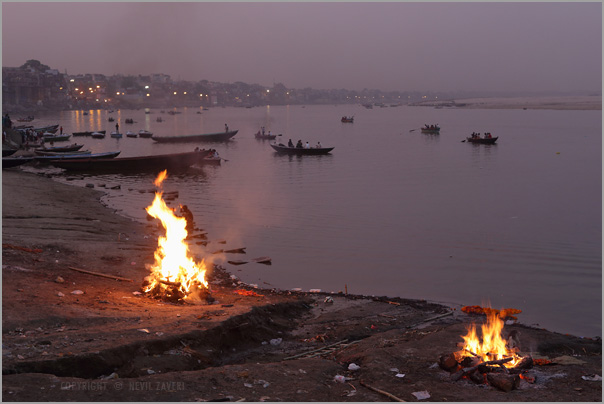Nagpur Woman Defies Tradition to Light Father’s Funeral Pyre and Perform Last Rites
On October 4 in Nagpur, Tamina Bobade, 44, performed the last rites of her father, Sumit Munshi, breaking the age-old Hindu tradition of only a male being allowed to light a parent's funeral pyre.

On October 4 in Nagpur, Tamina Bobade, 44, performed the last rites of her father, Sumit Munshi, breaking the age-old Hindu tradition of only a male being allowed to light a parent’s funeral pyre.
Defying the status quo is not new to Tamina and her two sisters, since they have no male siblings. Around 17 years ago, when their mother died, 42-year-old Amrita Bobade, the youngest among the sisters, lit her pyre.

According to reports, the emphasis on having a male relative perform the last rites comes from a Puran in the body of texts on Hinduism called Smriti. The Puran does not mention the daughter but explicitly states that the eldest son must complete funeral rites. This tradition is grounded in the belief that women are commodities who no longer belong to the family once they are married. Hence, the rites must be performed by any existing male relative.
In 1999, when their mother was unwell prior to her passing, she made it clear to her daughters she’d prefer they perform her last rites and that her soul would rest in peace only if one of the daughters lit the funeral pyre. Madhavi Bobade, 47, told The Times of India, “Our parents were proud of us and never considered the necessity to pine for a son. Lot of people would taunt my mother for having three daughters only but she never paid any heed to them.”
According to reports, on the day when Sumit’s last rites were performed, not too many eyebrows were raised unlike in 1999 when Leelavati, their mother, passed away. Back then, people from their extended family, community members and even the pundit resisted their move. They tried to discourage them by asking why men from their extended family couldn’t perform the rites. Amrita, who lit her mother’s funeral pyre, said “My parents never thought of us any less than a son, then why shouldn’t we go ahead? Ultimately all rituals were performed in the same way as a son would have done it. Even my father wanted it that way and that’s why we have honoured his last wish.”
Community members do get upset when ancient customs are given a progressive twist. But Madhavi admitted that now people are more broad minded about women assuming roles that were traditionally set aside for men.
Like this story? Or have something to share? Write to us: [email protected], or connect with us on Facebook and Twitter.
NEW: Click here to get positive news on Whatsapp!
This story made me
- 97
- 121
- 89
- 167
Tell Us More
We bring stories straight from the heart of India, to inspire millions and create a wave of impact. Our positive movement is growing bigger everyday, and we would love for you to join it.
Please contribute whatever you can, every little penny helps our team in bringing you more stories that support dreams and spread hope.


















